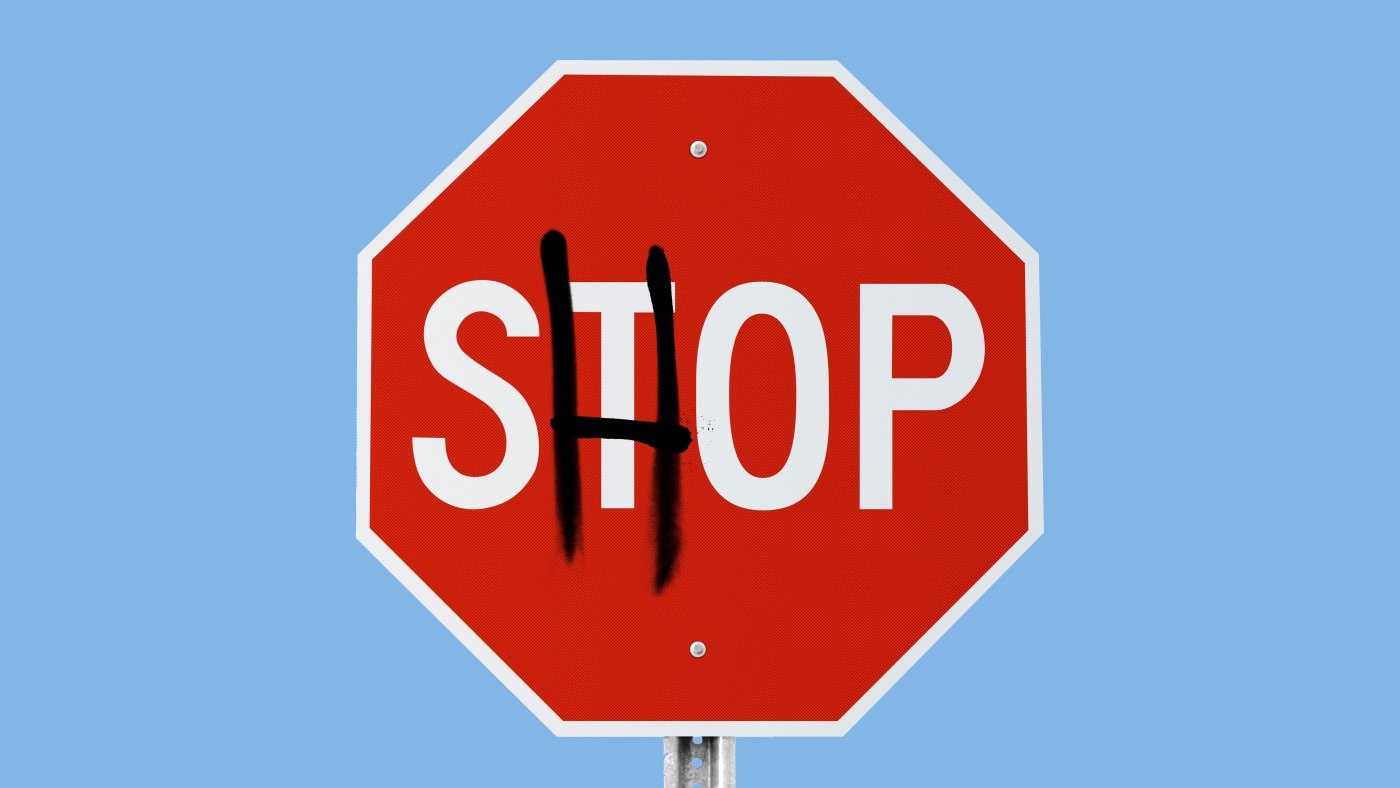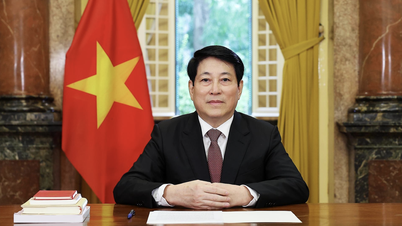Leah Ryan, a resident of Parker, Colorado, learned about the “no spending” trend through social media like millions of others. At first, she thought it was just a fun challenge. But as she joined, she realized the ugly truth about her habits: she often shopped on impulse.
"You have to be really conscious of what you're doing and what you're buying and try to stick to a plan," she told CBS Colorado. "It takes a lot of self-control. But the results have been really positive in terms of saving a lot of money and learning how to reuse or make use of what I already have."
Leah’s story is not an isolated incident, but a small slice of a larger picture of how consumers, especially millennials, are facing unprecedented financial pressures. From TikTok videos of themselves talking about what they want to buy instead of buying it, to Reddit communities of tens of thousands of people sharing their experiences of “quitting” shopping, a quiet but powerful financial revolution is underway.
From 'revenge spending' to 'revenge saving': Decoding the 'no-spend' craze
If 2022 was the year of “revenge spending” after the pandemic, 2025 will see a dramatic reversal to “revenge saving.” The term “no-spend” has become a global phenomenon, with appealing variations like “No Buy July” or the long-term commitment “No Buy 2025.”
Essentially, this personal commitment is to completely cut out all non-essential spending for a set period of time, from a day, a week, a month, to an entire year. Participants only spend money on basic needs such as rent, utilities, essential food, and medical care.
The explosion of this trend is measured in impressive numbers. According to a study by the financial technology company Chime cited by journalist Daria Solovieva, the hashtags #NoBuy and #NoBuy2025 increased by 90% across platforms X (Twitter), Reddit, and Pinterest in just one month at the end of 2024.
On TikTok, the trend's main stage, the hashtag #NoSpendChallenge had attracted more than 25,000 posts as of January. The platform has become a new generation of financial education , or "FinTok," where one in four Americans are turning to for tips on saving by 2024.
“No Buy July is like a financial detox,” Hanna Kaufman, a financial planner at Betterment, told editor Ivana Pino. She explained that the challenge helps people reset their habits, clarify their priorities, and increase their savings without sacrificing too much.

Americans are looking to rein in their spending habits in response to overconsumption, persistent inflation and the risk of a recession (Photo: Unsplash).
Behind the Trend: An Uncertain Economy
The “stop spending” craze is not a passing fancy. It is a symptom of a deeper economic “illness.” The data show that people are genuinely worried and have good reason to tighten their purse strings.
Inflation and rising cost of living: According to the Bureau of Economic Analysis, the consumer price index (CPI) has increased 24% since 2020. "Everything is so expensive right now," says Jasmine Renae Ray, a financial expert in Tulsa, Oklahoma, in an article by Ann Carrns. "People are asking themselves: How can I save money? What can I control?"
Recession and Job Loss Fears: A Santander survey paints a grim picture: 50% of Americans fear a recession, and 53% are concerned about inflation. More alarmingly, the average length of unemployment has now exceeded five months, up one month from a year ago. Bankrate data also shows that 69% of people worry about not being able to cover their living expenses if they lose their main source of income.
Debt Burden: The 2024 holiday season has left a significant financial legacy. A survey from LendingTree found that 36% of Americans have taken on additional credit card debt, with the average debt being $1,181. Meanwhile, millions of student loan borrowers are falling into default after deferral policies ended.
Against this backdrop, the personal savings rate, while volatile, is still on the rise, reaching 4.5% in May, significantly higher than the 3.5% level at the end of 2024. This is clear evidence that people are actively “protecting” themselves against economic uncertainty.
Why is "challenge" more effective than "budgeting"?
In theory, a simple budget spreadsheet can help you get your finances under control. But why are challenges like "No-Spend" so popular? The answer lies in psychology.
Clear structure and tangible goals: “Challenges work because they provide structure and a specific end point,” explains Hanna Kaufman, an expert at Betterment. “You’re not saying ‘no’ forever, you’re just saying ‘not now.’” Having a specific finish line (end of the month, end of the year) makes it easier for your brain to stick to it.
Reduce "decision fatigue": Gretchen Rubin, host of the podcast "Happier," says this challenge helps eliminate the fatigue of constantly comparing and contrasting every time you want to buy something. "When you decide in advance that you're not going to make a purchase, you free up mental energy for other things," she says.
The Power of Community: Another key factor is community support. Reddit groups with over 70,000 members or countless TikTok videos create a space for people to share their struggles, celebrate their successes, and feel more accountable for their commitments. As Eve Upton-Clark points out, it’s much easier to say “I’m participating in No Buy July” than to admit “I can’t afford coffee.”
Cultural Shift: More interestingly, the trend also marks a shift in social attitudes. "Being frugal used to be seen as stingy. Now it's seen as smart," Janelle Sallenave, director of spending at Chime, told Ann Carrns. Loud budgeting has become a sign of self-control and savvy.

Joining the "No-Spend" movement, many people even take a "no shopping year", cutting out unnecessary expenses to focus on important things (Photo: NPR).
Is "stop spending" the panacea?
However, not all experts are in complete support of this extreme approach. Some warn of its potential limitations and risks.
Sustainability and the risk of “compensatory shopping”: Professor James Choi of the Yale School of Management says there is no research to prove that short-term “spending bans” have long-term financial impacts. He likens it to going on an overly strict diet: “It can lead to compensatory shopping later,” he says.
The strategy isn't for everyone: Los Angeles-based expert Gloria Garcia Cisneros notes that the challenge is more suited to people with more disposable income, meaning those who "have the ability to cut." For those whose budgets are already tight, further cuts can cause unnecessary stress.
This is where the concept of "low-buying" emerges as a more sensible and sustainable alternative. "As a financial expert, I have reservations about the 'no-buy' strategy," Rianka Dorsainvil, a financial expert at Chime, told Salon. "Instead, I recommend adopting a 'low-buy' approach, which means drastically reducing, but not completely cutting out, non-essential spending."
Erin Jones, a single parent of two teenagers in Colorado, is a case in point. She told CBS Colorado that cutting back completely was not possible. Instead, she learned to be “careful and conscious about how she spends her money,” such as pre-loading a budget into a coffee app for special occasions instead of making impulse purchases.
So how do you "stop spending" intelligently?
If you're convinced by this trend and want to give it a try, experts advise starting strategically.
Create personal rules: There is no one-size-fits-all formula. Be honest with yourself about what you really need and what you want. Instead of completely banning things, allow yourself some small "fun" to stay motivated.
Set clear goals: Why are you doing this? To pay off credit card debt? To save money for travel? "Knowing your 'why' will help you stay on track when things get tough," writes Ivana Pino.
Find free fun: "Stop spending" doesn't mean stop living. "Replace your shopping habits with activities that are inexpensive or free: picnics, hiking, checking out books from the library," suggests Hanna Kaufman. Fashion blogger Paula Holloway also turns the challenge into a creative opportunity, remixing old clothes in her closet. "Sometimes you just need an ingredient, not a whole new dish," she says.
Use the "30-day rule": One popular trick is to put a non-essential item on a list and wait 30 days. "After 30 days, you'll find that you don't really want it anymore," suggests an article from CBS Colorado.
Forgive the slip-ups: "Aim for progress, not perfection," advises Kaufman. "If you accidentally buy a latte, don't give up. Look back, adjust, and move forward."

According to experts, we should "limit spending" instead of "stop spending" (Photo: Starling Bank).
“Stop Spending” is more than just a trending hashtag. It’s a reflection of the concerns of a generation struggling in a challenging economic climate. It’s a tool, however imperfect, to take back control from a consumer culture that constantly urges us to buy.
Whether you choose "no-buy" or "low-buy," the core message remains the same: spend consciously. As Gretchen Rubin discovered during her challenge, instead of buying new books, she started reading books that had been sitting on her shelf for a long time—a habit the Japanese call "tsundoku."
This trend also raises an important question for each of us, as expert Cisneros said: "Where are you spending your money? Is it really serving what you value?"
Perhaps the biggest financial revolution isn't about stopping spending money, but about starting to spend it on a more meaningful life. Because, as one article concluded, "spending less on things you don't need means you have more money for things that really matter."
Source: https://dantri.com.vn/kinh-doanh/khi-gen-z-va-gen-y-khoa-vi-tu-chi-tieu-tra-thu-toi-tiet-kiem-tra-dua-20250731233856667.htm




































































































Comment (0)